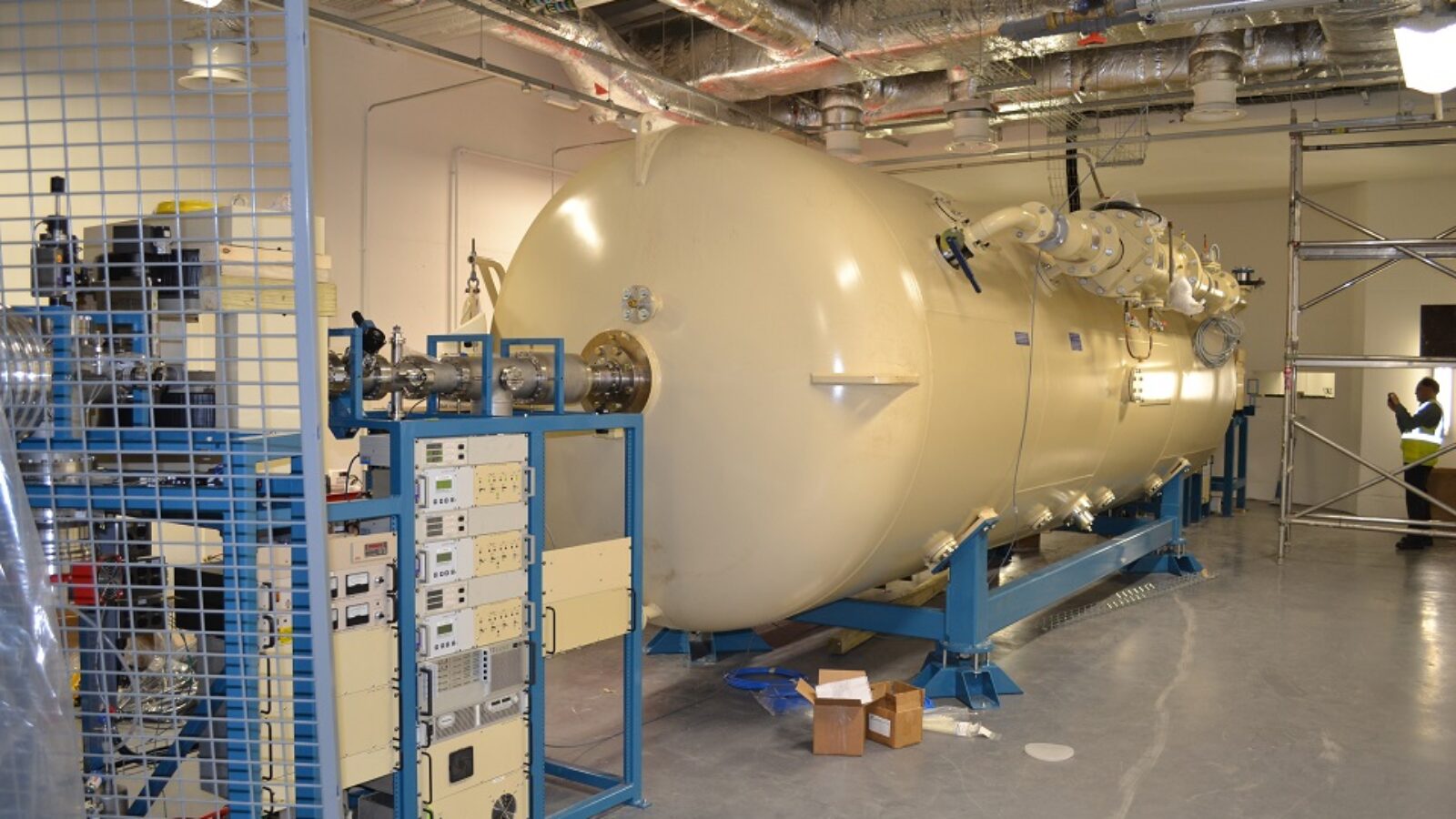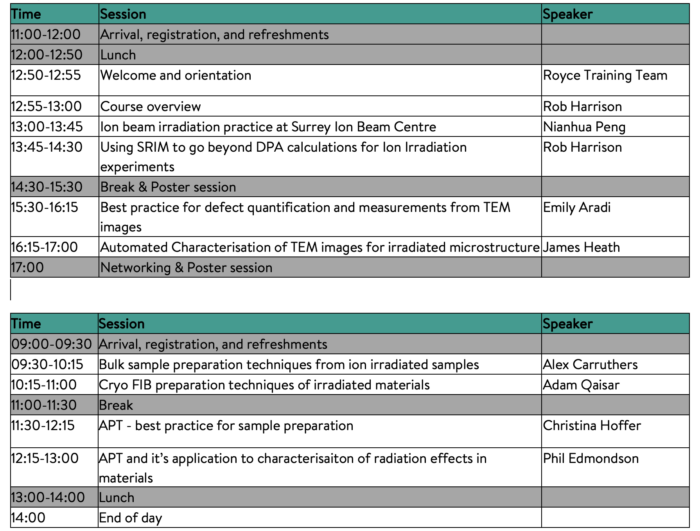This course explores procedures and techniques for the planning, preparation, and running of ion irradiation and characterisation experiments. The content will go beyond standard use cases familiar to most researchers and will introduce examples and processes that can help unlock the full potential of these approaches. Ultimately, participants will gain a deeper knowledge of best practice in this research area and provide useful guides on how to fully use these techniques available through Royce partners and the wider UK nuclear research community.
The course will cover:
Accessing Royce and UKRI facilities for ion irradiation experiments and materials characterisation
Planning, facility selection and execution of ion beam irradiations.
- Including training on DPA and broader radiation parameter calculations (recoil spectra, implantations)
Available radiation damage techniques and appropriate facilities
Guidance on Electron microscopy sample preparation and characterisation of induced damage:
- Bulk sample preparation
- Cyro preparation techniques
- Quantificaiton of radiation damage features
Atom probe tomography based techniques to examine radiation damage induced precipitates
- Best practice for sample preparation
- Design of experiment/plan to maximise output
Background and motivation
Ion beam irradiations are frequently used in nuclear materials research and engineering to replicate aspects of neutron irradiation damage. Experiments can achieve levels of damage within hours or days, compared to year-long neutron irradiation campaigns. The approach also avoids intendent activation of the materials that would then require specialist handling.
Running these experiments is complex, and care is needed when selecting ion irradiation type and run parameters. Consideration must also be given to the materials and generated defects when planning for downstream advanced characterisation techniques, such as electron microscopy (TEM) and atom probe tomography (APT). These challenging criteria require robust and well-defined approaches in experimental design to enable accurate investigation of nanoscale defects.
Audience
This course is suitable for researchers working in both academia and industry that want to develop their knowledge on ion beam irradiation experiments and materials characterisation. Researchers seeking to refine their existing protocols and understand current best practice would also be welcome to attend and contribute to the discourse.
Programme
Organisers
- Tom Hancocks, Royce
- Andrea Izquierdo, Royce
- Rob Harrison, The University of Manchester
- Philipp Frankel, The University of Manchester
- Mia Maric, The University of Manchester
- Simon Dumbill, National Nuclear Laboraotry
Speakers
- Rob Harrison, The University of Manchester
- Nianua Peng, University of Surrey
- Emily Aradi, University of Manchester
- James Heath, UKAEA
- Alex Carruthers, The University of Manchester



